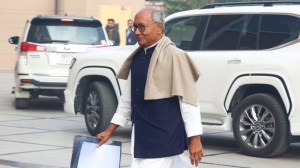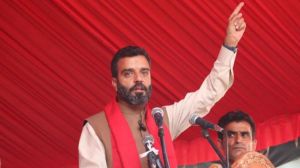Dying by degrees
One strong reason for outlawing the death penalty is the inevitable delay in executing a condemned convict after...

One strong reason for outlawing the death penalty is the inevitable delay in executing a condemned convict after a judicial verdict of death penalty. It is now established that prolonged delays in execution put the convict through the agony of suspense, which is itself an inhuman punishment. The trauma and physical stress coupled with the isolation of the convict in a long-delayed execution known as the 8216;death row phenomenon8217; is itself cruel punishment which no civilised society should tolerate even if it retains the death penalty. Besides the agony of the convict his close relatives suffer from cycles of hope and despair.
Long delays in execution are generally caused by the formalities taken to exhaust judicial remedies in appeals and reviews and sometimes in deciding clemency petitions by the government. Afzal Guru was sentenced to death by the Supreme Court for his part on the attack on Parliament on 5th August, 2005. He was due to be executed on 20th October, 2006 when it was stayed by the government because of a clemency petition by his family. The delay in Afzal Guru8217;s execution is quite different from the usual cases of delays in execution because it has become a political issue in a way no other execution in the history of the death penalty.
On the one hand it would appear that the present government is delaying taking a decision on his execution because it would cause violent reactions in Jammu and Kashmir. The BJP alleges that the government is avoiding taking a decision with an eye on minority votes. The home minister himself has linked the execution of Afzal Guru in India with the pending execution of Sarabjit Singh in Pakistan. On the other hand the BJP, led by its prime minister-in-waiting L.K. Advani, has clamoured for Afzal Guru8217;s execution in an unseemly manner. One wonders whether the BJP would have made such demands for his prompt execution had he not been a Muslim. If no decision is taken on Afzal Guru8217;s execution until the result of the next general election, the BJP if elected to power would have to carry out the execution as a political commitment.
What agony Afzal Guru and his immediate family are undergoing because of this political sparring over him is evident from his pathetic plea to of all persons, L.K. Advani. He says, 8220;I really wish L.K. Advani becomes India8217;s next prime minister as he is the only one who can take a decision and hang me. At least my pain and daily suffering will ease then8221;. Of the attitude of the present UPA government, Afzal Guru is equally bitter. He says, 8220;I don8217;t think the UPA government can reach a decision. The Congress party has two mouths and is playing a double game8221;.
In 1993, in a case of delayed execution of two convicts under execution in Jamaica and Trinidad, the Privy Council said, 8220;There is an instinctive revulsion against the prospect of hanging a man after he had been under sentence of death for many years. What gives rise to this revulsion? The answer can only be our humanity. We regard it as inhuman to keep a man facing the agony of execution for a long extended period of time. To execute these men now after holding them in custody in agony of suspense for so many years would be inhuman punishment8221;. In 2001, the Canadian Supreme Court refused to extradite an accused to the USA as imposing the death penalty would inevitably cause lengthy delay and it was an inhuman act to keep a man facing the agony of execution over a long period of time.
The Supreme Court of India has also held that while there cannot be a fixed period for execution, an unduly long delay in executing the death sentence would entitle the condemned persons to approach the court for altering it to imprisonment for life in the light of all circumstances of the case. In 1984 and again in 1996, the UN Economic and Social Council formulated standards for treatment of prisoners facing death penalty to avoid exacerbation of their suffering .
The indefinite deferral of a decision on Afzal Guru8217;s execution for political expedient reasons is as condemnable as the demand for his execution for political considerations. It cannot be justified morally or legally. Whatever his crime, Afzal Guru has suffered sufficiently with this agony on the death row by becoming a political object. In the name of humanity, he and his family must be saved from further suffering by commuting his sentence of death to an appropriate punishment.
The writer is a senior advocate and former solicitor-general of India
- 01
- 02
- 03
- 04
- 05































